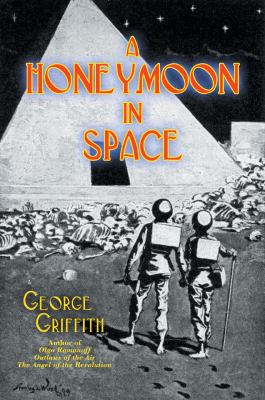By George Griffith (1857-1906).
John Long.
1904. 318 pages. 6s. Currently for sale at $250.00.
No available e-versions.
It's not often a writer gets to experience "a master stroke of invention":
The sensational novel nowadays stands no chance unless, in the common phrase, it is "fitted with all modern improvements." The six shilling shocker must embody the latest criminal trial or the newest marvel of science. We hasten therefore to congratulate Mr. Griffith on being the first novelist to realise the possibilities of radium in fiction. To combine radium with wireless telegraphy was a master stroke of invention.
Mr. Griffith has an exuberant fancy, and his idea of an underground—or rather under-sea—kingdom, where coining could be carried out on a colossal scale, is presented with such solemnity that we almost believed in it. "A Criminal Croesus" is as ingenious and plausible as anything Mr. Griffith ever wrote. — "Novel Notes," THE BOOKMAN [U.K.] (April 1904)
George Griffith (1857–1906), full name George Chetwyn Griffith-Jones, was a prolific British science fiction writer and noted explorer who wrote during the late Victorian and Edwardian age. Many of his visionary tales appeared in magazines such as Pearson's Magazine and Pearson's Weekly before being published as novels. Griffith was extremely popular in the United Kingdom, though he failed to find similar acclaim in the United States, in part due to his revolutionary and socialist views. A journalist, rather than scientist, by background, what his stories lack in scientific rigour and literary grace they make up for in sheer exuberance of execution.
. . . Although overshadowed by H. G. Wells in the United States, Griffith's epic fantasies of romantic utopians in a future world of war, dominated by airship battle fleets, and grandiose engineering provided a template for steampunk novels a century before the term was coined. Michael Moorcock claims that the works of George Griffith had a dramatic impact on his own writing. The concept of revolutionaries imposing "a pax aeronautica over the earth," at the center of Angel of the Revolution, was taken up by Wells many years later, in The Shape of Things to Come. Wells himself once wrote that Griffith's Outlaws of the Air was an "aeronautical masterpiece." — Wikipedia ("George Griffith")



No comments:
Post a Comment